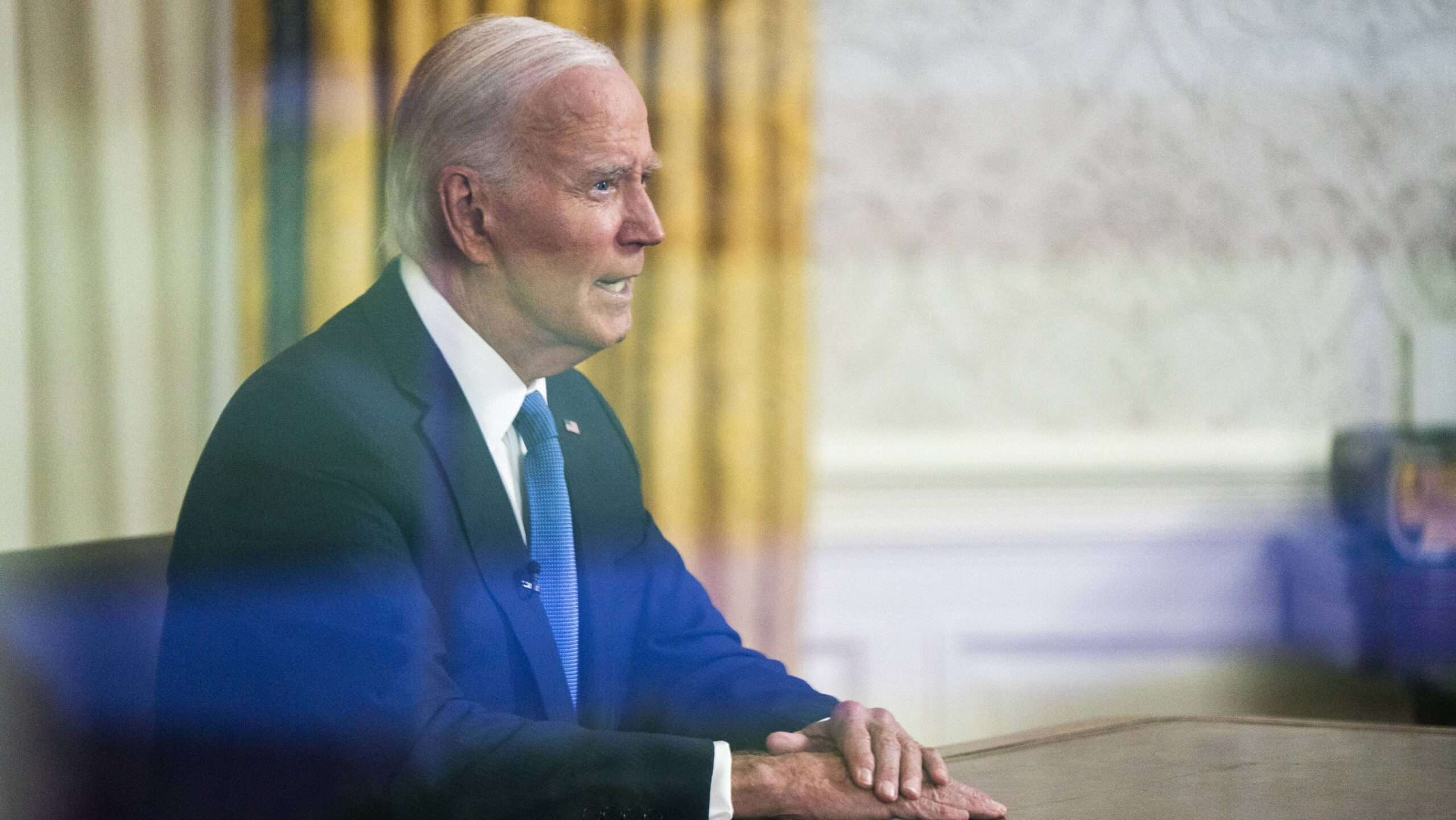President Joe Biden’s decision to exit the 2024 race provided a glimpse into the complex world of campaign finance law.
The intricate web of often confusing rules underscores the importance of establishing a judicial barrier to safeguard political speech—a concept known as a “separation of campaign and state.”
Following Biden’s departure, his presidential campaign committee and its substantial $92 million fund essentially transitioned to Vice President Kamala Harris. This move prompted a challenge from Donald Trump’s campaign to the Federal Election Commission (FEC) regarding the legality of the transfer.
While the circumstances are unprecedented, it is clear that the laws and regulations lack clarity, and the controversy will not be resolved before the election.
There are valid arguments on both sides of this legal dilemma regarding Harris’s ability to assume control of the campaign funds. However, the predicament caused by a late-stage candidate replacement underscores the broader truth that campaign finance laws are inappropriate, unnecessary, and often unconstitutional. They impede the right to political speech through campaign contributions and increasingly burdensome disclosure requirements.
The current struggle of Democrats to adapt swiftly to these unique circumstances is just a glimpse of a larger issue. Campaign finance laws operate on the flawed assumption that political speech can be heavily regulated without violating the First Amendment. Numerous laws—some currently being challenged in court—aim to shield incumbents and stifle political innovation.
For instance, the Georgia election code permits “a leadership committee…led by the Governor, the Lieutenant Governor, [or] the party’s gubernatorial nominee selected in a primary election” to raise and spend unlimited funds in any campaign, including their own. However, regular lawmakers and other candidates generally do not have the same privilege. Federal candidates must conclude their ads with their name and “I approve this message” due to a 2002 law aimed at reducing negative ads against incumbents.
Such laws can lead to unintended consequences that distort the democratic processes they were designed to safeguard.
The abrupt dissolution of the Biden campaign exemplifies how campaign finance laws can hinder political flexibility and free speech. Similar issues arise with the overly restrictive limits on the number of ads a political party can air while coordinating messaging with their top nominees. The party is restricted to a meager $32.4 million expenditure on such ads, a small amount in an era of billion-dollar presidential campaigns. The limits are even lower for congressional races.
These laws have the most impact at the grassroots level. If you and a friend spend as little as $250 on social media ads encouraging support for a federal candidate, you must file a detailed report with the government. If you exceed $1,000, a relatively small sum in million-dollar campaigns, the FEC requires you to register with the agency and submit multiple reports throughout an election year, making tax returns appear straightforward in comparison.
A 2007 study by University of Missouri economics professor Jeffrey D. Milyo tasked 255 educated individuals with completing campaign finance disclosure forms for California, Colorado, and Missouri. The study revealed that “No one completed the forms correctly.”
Even more absurdly, contributing just $5 to Harris via ActBlue or Trump through WinRed results in your name and home address being permanently listed on the FEC’s public online database. However, if you mail a check for $200 or less, your privacy is preserved.
There is hope that the challenges Democrats face will prompt a reconsideration of the tendency to overly regulate money in politics. This is an opportunity to evaluate whether the current system serves the democratic interests and free speech rights. Does it promote competitive elections, robust political discourse, and healthy political parties? Or does it introduce complexity that benefits regulatory compliance specialists at the expense of substantial political debate?
Increasingly, the answer appears to be the latter.
The legal uncertainties triggered by Biden’s withdrawal underscore the necessity for a clear division between campaigns and state authority. Just as there is a separation of church and state to protect religious freedom, courts should establish a similar First Amendment safeguard between “campaign and state,” a concept first proposed by Brad Smith, a free speech expert and former FEC chairman. This safeguard would shield campaign-related political speech from government intervention.
In its 2010 ruling in Citizens United v. FEC, the Supreme Court emphasized, “The First Amendment does not allow laws that compel speakers to engage a campaign finance attorney…or seek official rulings before discussing the most critical political topics of our time.” Nonetheless, campaigns and advocacy groups often must engage campaign finance attorneys to navigate a maze of laws that few comprehend.
Our campaign finance system requires reform—not additional restrictions of escalating complexity, but rather the unravelling of the confusion that jeopardizes political responsiveness and fundamental free speech rights. The uncertainties surrounding campaign finance in the wake of Biden’s exit should serve as a wake-up call for all those who value vibrant democratic dialogue and a competitive political landscape.
Please rephrase.
Source link






